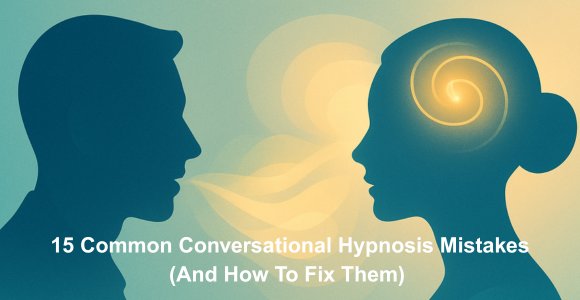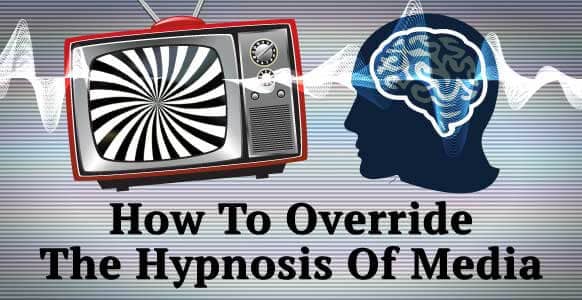
Ever wondered what separates a weekend hobbyist from a professional hypnotherapist who transforms lives daily? Or why some practitioners struggle to find clients while others build thriving practices with waiting lists?
The answer lies in the quality and depth of their hypnosis training.
Whether you’re drawn to help others overcome limiting beliefs, manage chronic pain, or unlock their full potential, proper training forms the foundation of your success. But with hundreds of programs claiming to offer “the best hypnosis training,” how do you separate genuine professional development from flashy marketing?
This comprehensive guide cuts through the confusion. You’ll discover exactly what quality hypnosis training covers, understand certification standards that matter, and explore career paths that await skilled practitioners. Most importantly, you’ll walk away with a clear roadmap for choosing the program that aligns with your goals – whether that’s starting a private practice, adding hypnotherapy to your existing coaching business, or simply mastering self-hypnosis for personal growth.
What Hypnosis Training Covers: Outcomes and Skills
Professional hypnosis training goes far beyond learning a few induction scripts. Quality programs develop both the technical expertise and interpersonal skills needed to facilitate real change.
Core Hypnosis Competencies You’ll Want To Master
Trance States & Inductions: You’ll learn multiple induction techniques – from rapid inductions that work in seconds to progressive relaxation methods perfect for anxious clients. But more importantly, you’ll understand why each technique works and when to use them.
This includes recognizing trance indicators, deepening states of hypnosis, and safely emerging clients from trance.
Language That Creates Change: Words become your primary tool. Advanced hypnosis training teaches you to craft suggestions that bypass resistance, use embedded commands naturally in conversation, and employ metaphors that speak directly to the unconscious mind. You’ll master both direct and indirect suggestion styles, understanding when each approach serves your client best.
Assessment and Strategy Skills: Before any hypnosis begins, you need to understand your client’s real issue – not just what they think it is. Training covers intake procedures, identifying root causes versus symptoms, and creating customized session plans. You’ll learn to spot contraindications and know when to refer clients to other professionals.
Therapeutic Techniques and Protocols: From regression work to parts therapy, from anchoring positive states to reframing negative beliefs – quality training provides you with a full toolkit. You’ll practice specific protocols for common issues like smoking cessation, weight management, anxiety, and confidence building while learning to adapt these frameworks for unique client needs.
Hypnotic Rapport: The Foundation of Effective Practice: A truly transformative hypnosis session begins with one essential ingredient: rapport. Without a strong, trust-based connection between you and your client, even the most advanced techniques may fall flat.
That’s why professional hypnosis training places a strong emphasis on developing your ability to build and maintain rapport. You’ll learn how to use your language, tone, body language, and overall presence to create a sense of safety and collaboration.
This skill is not just important—it’s foundational. A well-established rapport enhances every other method, strategy, and protocol you’ll use, making it easier to guide clients into trance, deliver impactful suggestions, and support lasting change.
Real-World Application Skills
Beyond techniques, professional programs emphasize practical application:
- Building instant rapport and maintaining therapeutic relationships
- Managing difficult clients and unexpected abreactions
- Structuring sessions for maximum impact
- Integrating hypnosis with other modalities you may already practice
- Developing your unique style while maintaining ethical standards
The best programs include extensive supervised practice. You’ll work with real clients under instructor guidance, receiving feedback that accelerates your development from nervous beginner to confident practitioner.
Choosing Your Hypnosis Style: Finding Your Perfect Approach
One of the most crucial decisions in your hypnosis training journey involves selecting the style that resonates with your personality, goals, and intended client base. Think of it like choosing a martial art – while all styles can be effective, some will feel more natural and aligned with who you are as a practitioner.
Traditional/Direct Hypnosis
What It Is: Traditional hypnosis employs clear, direct suggestions delivered to the unconscious mind while the client is in a focused state of attention. This approach uses straightforward language and explicit instructions to create change. Rather than working through metaphor or implication, the practitioner directly addresses the desired outcome – whether that’s releasing a habit, building confidence, or managing pain. The hypnotist guides the process with clarity and purpose, using their expertise to help the client achieve specific goals.
Why It Works: Direct suggestion leverages the power of focused attention and authority. When someone is in a hypnotic state, their unconscious mind becomes highly receptive to simple, unambiguous instructions—especially when delivered with confidence and precision. By removing ambiguity, traditional hypnosis reduces mental “noise” and resistance, allowing the mind to follow clear pathways toward change. This is why clients often experience rapid results: the process creates a straight line from suggestion to outcome, making it highly effective for targeted goals and symptom relief.
Best For:
- Practitioners who prefer clear structure and protocols
- Working with clients who respond well to straightforward guidance
- Quick interventions like smoking cessation, habit control or phobias
- Stage hypnosis or demonstration settings
- Medical and dental applications where precise suggestions are needed
- Clients who appreciate knowing exactly what’s happening in their session
Training Focus: Programs emphasizing traditional hypnosis teach rapid and instant inductions, deepening techniques, and direct suggestion formulation. You’ll master the confident delivery and authoritative presence this style requires.
Consider This Style If: You appreciate working with proven protocols, enjoy seeing clear cause-and-effect relationships in your work, and want to help clients achieve specific, measurable outcomes. Many practitioners value this approach for its reliability and the extensive research supporting its effectiveness in clinical settings.
Ericksonian Hypnosis
What It Is: Pioneered by renowned psychiatrist Dr. Milton H. Erickson, Ericksonian Hypnosis takes a radically different approach from traditional, directive styles. Instead of using authoritative commands, this method harnesses the power of storytelling, metaphors, embedded suggestions, and artful ambiguity to engage the unconscious mind.
It operates on the principle that the unconscious already possesses the resources needed for healing and change—your job as the practitioner is to create the conditions where those resources are naturally accessed.
Why It Works: Ericksonian hypnosis aligns with how the brain naturally processes information. Through symbolic language, stories, and suggestion embedded in casual conversation, it bypasses the critical conscious mind and avoids triggering resistance or defensiveness. Clients often don’t even realize they’re in a hypnotic state—they just feel deeply heard, understood, and gently guided toward their goals.
Best For:
- Resistant or analytical clients who don’t respond to direct suggestion
- Complex psychological issues requiring gentle exploration
- Building deep therapeutic relationships
- Practitioners who enjoy creativity and flexibility
Training Focus: Ericksonian programs dive deep into language patterns, metaphor construction, and observational skills. You’ll learn to recognize minimal cues, utilize whatever the client presents, and craft interventions that feel like natural conversations.
Consider This Style If: You’re naturally observant, enjoy storytelling, and prefer working with subtlety rather than force. This approach requires patience and practice but offers profound flexibility.
Conversational Hypnosis
What It Is: Conversational Hypnosis, also known as covert or waking hypnosis, is a highly versatile style that allows you to embed hypnotic influence naturally into everyday conversation—without ever requiring a formal trance induction through strategic questions, artfully embedded suggestions, presuppositions, and other subtle language patterns that gently guide their subconscious toward change while they remain fully alert and responsive.
To the untrained ear, it sounds like a regular dialogue. But underneath the surface, a well-trained conversational hypnotist is subtly shifting perceptions, reframing beliefs, and leading the client into resourceful states.
Why It Works: Conversational hypnosis leverages the principle that hypnosis is a natural, everyday state—people slip into trance-like focus all the time during emotional conversations, daydreaming, or storytelling. By using hypnotic language patterns and hypnotic influence techniques during these naturally receptive moments, change can occur without resistance or the need to “announce” that hypnosis is happening.
This method is particularly effective with clients who may be skeptical of formal hypnosis, or in settings where closing eyes and reclining on a couch simply isn’t practical or desired.
Best For:
- Coaching and consulting contexts
- Clients resistant to formal hypnosis
- Integration with other professional services
- Brief interventions and informal settings
Training Focus: Conversational hypnosis training emphasizes rapport building, language patterns, and state management. You’ll master techniques like the “yes set,” presuppositions, and analog marking to influence without obvious hypnosis.
Consider This Style If: You want to incorporate hypnotic principles into existing work, prefer informal approaches, or work in settings where formal hypnosis isn’t appropriate. Sales professionals, teachers, and coaches often gravitate toward this style.
(If you want to dip your toes into hypnotic language and conversational hypnosis, this Hypnotic Language Patterns For Everyday Influence Guide is an excellent place to start!)
Clinical Hypnosis
What It Is: Clinical Hypnosis is the application of hypnotic techniques within medical, dental, and psychological frameworks, grounded in research and supported by peer-reviewed evidence.
Unlike entertainment or self-help forms of hypnosis, clinical hypnosis is typically practiced by or alongside licensed healthcare professionals to address medically-related or psychologically-complex conditions. It uses structured, protocol-driven approaches to achieve measurable therapeutic outcomes in areas such as chronic pain, anxiety, trauma, phobias, irritable bowel syndrome (IBS), smoking cessation, and more.
Why It Works: Clinical hypnosis enhances the body’s natural healing mechanisms and improves psychological resilience by activating deep states of focus and receptivity. It may reduce the need for medication, speed recovery, and help patients gain control over symptoms that once seemed overwhelming. Because it is non-invasive, drug-free, and highly adaptable, it’s especially valuable for patients seeking complementary options within their treatment plans.
Best For:
- Medical and dental procedures
- Chronic pain management
- Anxiety and depression treatment
- Working within healthcare settings
Training Focus: Clinical programs cover anatomy, psychology, and medical terminology alongside hypnotic techniques. You’ll learn specific protocols for medical applications and how to collaborate with healthcare providers.
Consider This Style If: You have a healthcare background, want to work in medical settings, or prefer evidence-based approaches with clear protocols and measurable outcomes.
Regression Hypnotherapy
What It Is: Regression Hypnotherapy is a powerful and transformative style of hypnosis that focuses on guiding clients back to the origin of their emotional or behavioral challenges—often rooted in past experiences, unresolved traumas, or formative events. Regression work seeks to uncover the “when and why” behind the issue, allowing the client to reprocess, reframe, and ultimately release limiting beliefs or emotional blocks.
This process can involve exploring childhood memories and early life experiences depending on the client’s worldview and the practitioner’s orientation. Regardless of the source, the goal is consistent: identify and resolve the root cause, rather than merely managing effects.
Why It Works: Many of our present-day challenges stem from early programming and emotional imprints formed when we were young and impressionable. These unconscious patterns—created for protection or survival—can persist long after they’re needed.
Regression hypnotherapy creates a safe and focused environment to revisit these moments, often in a detached observer role, where clients can access deeper insight, achieve emotional catharsis, and create new meaning.
By re-experiencing and reinterpreting the original events, clients are often able to dissolve phobias, chronic anxiety, self-sabotaging patterns, or unexplained emotional reactions that traditional talk therapy may take much longer to address.
Best For:
- Deep-seated emotional issues
- Unexplained fears or behaviors
- Clients seeking understanding of patterns
- Therapeutic breakthrough work
Training Focus: Regression training covers age regression techniques, emotional release processes, and safe abreaction management. You’ll learn to guide clients through potentially intense experiences while maintaining therapeutic safety.
Consider This Style If: You’re comfortable with emotional intensity, interested in deep therapeutic work, and drawn to helping clients understand the origins of their challenges.
Hybrid Approach: Adaptive Hypnosis Tailored to Every Client
What It Is: Rather than adhering strictly to one method such as only using direct suggestions or purely Ericksonian metaphors hybrid practitioners blend techniques fluidly, drawing from various traditions and schools of thought to meet each client’s unique needs, preferences, and responses.
This adaptability reflects the real-world reality of hypnosis: no two clients are exactly alike. One session might call for rapid inductions and direct post-hypnotic suggestions, while another may benefit from conversational storytelling, metaphor, or inner child regression.
A hybrid hypnotherapist assesses each situation intuitively and strategically, crafting sessions that are as diverse and dynamic as the people they serve.
Why It Works: While structured approaches provide a solid foundation, human transformation is rarely linear. The hybrid model empowers you to go beyond protocol, allowing for fluid transitions between modalities, deeper responsiveness to the client’s subconscious signals, and more personalized sessions.
In practice, this means you’re never boxed in. You can start with a conversational technique to build rapport, shift into a traditional trance for therapeutic suggestion, and close with regression work—all in one integrated session if appropriate. The result is a more holistic, intuitive, and results-driven client experience.
Best For:
- Diverse client populations
- Complex cases requiring flexibility
- Experienced practitioners
- Those who enjoy variety
Training Focus: Comprehensive programs teach multiple approaches, emphasizing when and how to shift between styles. You’ll develop the discernment to match technique to client and situation.
Consider This Style If: You enjoy learning multiple approaches, want maximum flexibility, and prefer not being limited to one methodology.
Making Your Choice
Selecting your primary style doesn’t mean ignoring others. Most successful practitioners develop proficiency in multiple approaches. Consider these factors:
Your Natural Tendencies: Are you more direct or indirect in communication? Do you prefer structure or flexibility?
Your Target Market: Corporate clients might prefer conversational approaches, while those seeking therapy might expect more traditional methods.
Your Professional Context: Healthcare settings often require clinical approaches, while coaching environments suit conversational styles.
Your Learning Style: Some approaches require more creativity (Ericksonian), while others offer more structure (traditional).
Start with the style that resonates most strongly, then expand your toolkit as you gain experience. The best hypnosis training programs expose you to multiple approaches, helping you discover your natural style while building versatility.
Certification Levels and Industry Standards
The hypnotherapy field lacks universal regulation, which makes understanding certification levels crucial for your credibility and career prospects.
Entry-Level Certifications
Basic Practitioner Certification typically requires 100-150 hours of training. These programs cover fundamental techniques and are suitable for adding hypnosis to an existing practice or beginning your journey. Organizations like the National Guild of Hypnotists (NGH) and International Association of Counselors and Therapists (IACT) offer recognized entry-level certifications.
Professional Certifications
Clinical Hypnotherapist Certification generally demands 200-500 hours of training, including supervised practice and case studies. This level prepares you for full-time practice and working with complex client issues. The American Council of Hypnotist Examiners (ACHE) and International Board of Hypnotherapy (IBH) provide credentials at this level.
Conversational Hypnotherapy Certification represents a specialized professional pathway. The International Association of Professional Conversational Hypnotherapists (IAPCH) certifies practitioners who master the art of creating change through natural conversation. This certification demonstrates your ability to weave hypnotic techniques seamlessly into coaching, consulting, and therapeutic conversations without formal trance induction. IAPCH certification is particularly valued by professionals who want to integrate hypnotic influence into existing practices while maintaining a conversational, collaborative approach with clients.
Advanced and Specialty Certifications
After establishing your foundation, specialized training in areas like medical hypnosis, sports performance, or pediatric hypnotherapy can distinguish your practice. These programs typically require prerequisite certifications and focus on specific populations or techniques. The IAPCH also offers advanced certifications for practitioners wanting to deepen their conversational hypnosis expertise in specific applications.
One of the most comprehensive pathways available for this level of mastery is the Conversational Hypnotherapy Diploma which provides an in-depth training curriculum designed to help practitioners build real confidence and fluency in hypnosis. It emphasizes advanced skills such as unconscious influence, therapeutic conversation, and subtle hypnotic language along with live practice with trainers and students.
Graduates often find that this type of advanced conversational training not only strengthens their ability to create lasting change with clients, but also gives them a professional edge. Whether your interest lies in clinical work, coaching, or personal transformation, a structured diploma program ensures that your skills go beyond surface-level techniques, preparing you to work at the highest level of the profession.
What to Look for in Accreditation
Legitimate hypnotherapy certification programs should offer:
- Recognition by established hypnosis organizations
- Clear curriculum standards and learning objectives
- Qualified instructors with verifiable credentials
- Practical experience requirements
- Ongoing support and continuing education options
- Ethics training and professional conduct guidelines
How to Choose the Right Program: Your Decision Checklist
Selecting hypnosis training is an investment in your future. Use this comprehensive checklist to evaluate programs:
Program Credibility
- Established track record (minimum 5 years operation)
- Accreditation by recognized hypnosis organizations
- Transparent about instructor qualifications
- Positive reviews from verified graduates
- Clear refund and satisfaction policies
Curriculum Depth
- Covers both theory and practical application
- Includes multiple hypnotic approaches (not just one style)
- Addresses business and practice-building skills
- Provides written materials and resources
- Offers continuing education opportunities
Support Structure
- Access to instructors for questions
- Practice opportunities with feedback
- Graduate community or mentorship program
- Assistance with certification requirements
- Ongoing professional development resources
Practical Considerations
- Fits your schedule and learning style
- Total investment (including materials and certification fees)
- Time to certification completion
- Prerequisites or experience requirements
- Technology requirements (for online programs)
Career Paths, Income Ranges, and Client Niches
Hypnotherapy certification opens multiple career avenues, each with unique rewards and challenges.
Private Practice
Building an independent practice offers maximum flexibility and earning potential. Successful practitioners charge $100-$500 per session, with established professionals in major markets commanding premium rates. Initial investment includes office space (or virtual platform subscriptions), marketing, and insurance. Most practitioners report reaching sustainability within 12-18 months of focused effort.
Integrated Practice
Many professionals add hypnotherapy to their existing careers to give them an edge:
- Life & Executive Coaches – Break limiting beliefs, anchor success states, and install performance habits.
- Counselors & Therapists – Accelerate breakthroughs, manage trauma, and complement cognitive therapies.
- Naturopaths – Reinforce healing protocols, reduce stress-induced symptoms, and address subconscious contributors to illness.
- Doctors & Dentists – Ease procedural anxiety, manage pain, support recovery, and reduce reliance on medications.
- Fitness Trainers & Nutritionists – Boost adherence, eliminate self-sabotage, and increase motivation.
- Doulas & Midwives – Use hypnobirthing for natural pain relief, calmer births, and empowered parenting starts.
- Educators & Tutors – Improve focus, reduce test anxiety, and enhance retention with hypnotic learning techniques.
- Addiction Recovery Coaches – Address subconscious triggers, strengthen relapse prevention, and reinforce identity shifts.
- Reiki & Energy Healers – Deepen trance states for greater energetic alignment and emotional release.
- Speech Therapists – Help overcome performance anxiety, stuttering, or public speaking fears.
- Financial Coaches & Advisors – Reframe money beliefs, reduce financial anxiety, and improve decision-making clarity.
- HR Professionals & Corporate Trainers – Deliver stress-reduction workshops, peak performance sessions, and mindset mastery training.
- Artists, Actors & Musicians – Unblock creativity, reduce stage fright, and build confident performance routines.
- Spiritual Guides & Meditation Teachers – Integrate hypnotic states into visualization, manifestation, and inner journey work.
Corporate and Organizational Work
Companies increasingly recognize hypnotherapy’s value for employee wellness. Opportunities include:
- Stress management workshops
- Performance enhancement programs
- Smoking cessation initiatives
- Executive coaching with hypnotic techniques
Corporate contracts often provide steady income and exposure to potential private clients.
Specialized Niches
Focusing on specific populations or issues can accelerate practice growth:
- Sports performance for athletes and teams
- Academic enhancement for students and test anxiety
- Medical support for surgical preparation and chronic conditions
- Pregnancy and birthing support
- Children and adolescents for behavioral and learning challenges
Specialists often command higher fees and benefit from focused marketing efforts.
Your Next Step Forward
Choosing hypnosis training marks the beginning of an extraordinary journey. Whether you’re drawn to help others overcome challenges, enhance performance, or unlock potential, the skills you develop will transform both your life and the lives you touch.
The path from curious beginner to confident practitioner is clear: invest in quality training, commit to continuous learning, and focus on genuinely serving your clients’ needs. With the right foundation, you’ll join thousands of professionals making meaningful differences through the power of hypnotic communication.
Ready to explore your options? Start by identifying your primary motivation for learning hypnosis. Are you looking to help others professionally? Enhance existing skills? Or master self-hypnosis for personal growth? Your answer will guide you toward the perfect program for your unique journey.
Remember, the best hypnosis training doesn’t just teach techniques – it transforms you into a catalyst for positive change. The question isn’t whether you can become a successful hypnotherapist. It’s simply: when will you begin?
FAQs About Hypnosis Training
Q: Do I need a psychology or medical background to become a hypnotherapist?
A: No, most hypnotherapy certification programs welcome students from all backgrounds. Healthcare professionals may have advantages in clinical settings, but successful hypnotherapists also come from business, education, coaching, and the arts. Your life experience, communication skills, and a genuine desire to help others matter more than formal clinical credentials.
Q: How long before I can start seeing clients?
A: This depends on your program structure and local regulations. Many students begin supervised practice within weeks, while most practitioners recommend completing at least 100 hours of structured training before working independently. Prioritize competence and confidence over speed so your first client experiences are safe and successful.
Q: What’s the difference between hypnosis and hypnotherapy training?
A: Hypnosis training teaches trance inductions, deepening, and suggestion delivery. Hypnotherapy training adds therapeutic application, client assessment, treatment planning, ethics, and practice-building. If your goal is a professional career helping clients with specific issues, hypnotherapy certification provides broader preparation.
Q: Can I really make a living as a hypnotherapist?
A: Yes. Thousands of practitioners run sustainable practices worldwide. Income varies by location, niche, and business acumen, but many full-time hypnotherapists report earning in the $50,000–$150,000 range, with higher potential in premium markets or specialized niches such as smoking cessation, weight loss, medical support, trauma-informed work, and performance optimization.
Q: Is online certification respected in the field?
A: Quality online programs from established institutions are widely respected when they include live instruction, supervised practice, competency checks, and clear ethical standards. Many successful practitioners train primarily online and supplement with targeted in-person workshops to refine hands-on skills.
Q: How long does hypnosis training take overall?
A: Introductory courses may take a weekend, professional certification typically spans several weekends or months, and mastery pathways continue with advanced modules and supervision. Your timeline accelerates when you practice consistently and receive timely feedback from mentors.
Q: How much does hypnosis training cost?
A: Introductory classes often range from $100 to $500, professional certifications typically run $2,000 to $7,000, and advanced or specialist trainings can exceed $5,000. Consider trainer reputation, supervised practice, post-grad support, and career outcomes—not just sticker price.
Q: What topics are covered in a comprehensive hypnosis training?
A: Expect foundations of hypnotic phenomena, ethical client communication, inductions and deepening, suggestion design, self-hypnosis, conversational hypnosis, regression and parts work, symbolic imagery, treatment planning, and practice management. Strong programs blend theory with live demos and supervised practice.
Q: Do I need certification to practice legally?
A: Legal requirements vary by country and state. Some regions allow non-licensed practitioners to offer hypnosis for non-medical goals; others restrict hypnotherapy to licensed healthcare providers. Regardless of law, recognized certification enhances credibility, safety, and client trust.
Q: How do I choose the right hypnosis training school?
A: Look for experienced trainers with clinical or client-track records, recognized accreditation or affiliation, structured practice with supervision, clear assessment standards, robust alumni support, and transparent ethics. Review student outcomes and sample a live session if possible.
Q: Will I learn self-hypnosis as part of training?
A: Yes. Quality programs teach self-hypnosis for focus, resilience, and continued skill development. Practicing on yourself deepens your understanding of client experiences and improves your delivery.
Q: How is supervised practice usually handled?
A: Supervision may include live breakout practice with feedback, recorded session reviews, case consultations, and competency checklists. Consistent supervised reps shorten your path to confident client work.
Q: Can hypnosis be integrated with coaching or therapy I already offer?
A: Absolutely. Hypnosis pairs well with coaching, NLP, CBT principles, somatic methods, mindfulness, and performance psychology. Integration expands your toolkit and can improve client outcomes when used ethically and within scope.
Q: What equipment do I need for online hypnosis training?
A: A reliable computer, webcam, microphone, and stable internet are typically sufficient. A quiet, private space and consent for recording practice sessions can further enhance learning and feedback.
Q: How are students assessed before certification?
A: Programs commonly use practical demonstrations, written or oral exams, observed sessions, and case write-ups. Passing standards focus on safety, ethics, clarity of communication, and demonstrated effectiveness in core techniques.
Q: How do I attract clients once I’m certified?
A: Start with a clear niche, publish helpful content that answers client questions, gather testimonials ethically, build referral relationships with adjacent professionals, offer outcome-focused packages, and maintain consistent follow-up. Ethical marketing that educates tends to convert best.
Q: Is hypnosis safe, and what ethical guidelines apply?
A: Hypnosis is considered safe when practiced by trained professionals who obtain informed consent, stay within scope, avoid unsupported medical claims, and refer out when issues require licensed care. Adhering to a code of ethics protects both clients and practitioners.
Q: Will my certification be recognized internationally?
A: Recognition depends on the issuing body and the destination country’s rules. Choose programs with widely known affiliations and verify acceptability with local authorities if you plan to practice abroad.
Q: Can I train while working full-time?
A: Yes. Many programs are designed for busy professionals, offering modular lessons, evening or weekend live sessions, and flexible practice schedules. Consistency matters more than intensity—steady weekly reps compound quickly.






![[ADVANCED GUIDE] How To Master Hypnotic Regression Therapy - Part I: Essential Principles To Profoundly Transform Your Subject’s Emotional Trauma [ADVANCED GUIDE] How To Master Hypnotic Regression Therapy - Part I: Essential Principles To Profoundly Transform Your Subject’s Emotional Trauma](https://hypnosistrainingacademy.com/wp-content/uploads/2016/09/hypnotic-regression-therapy-essential-principles.jpg)





